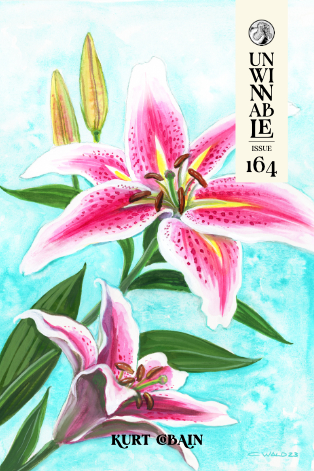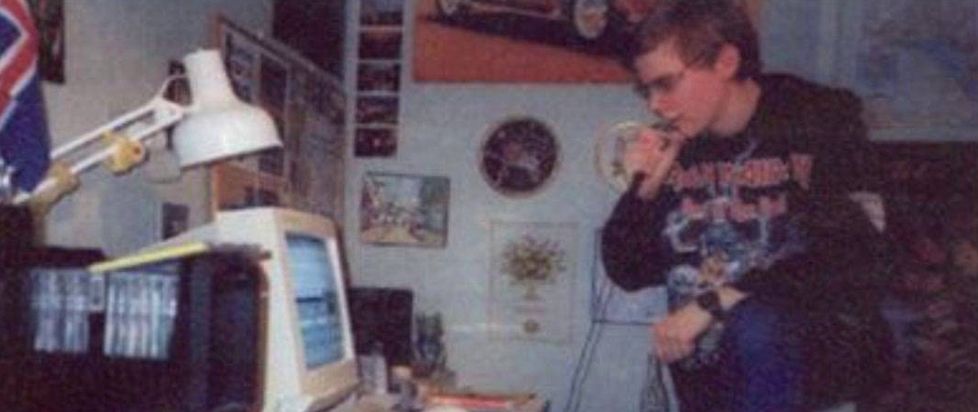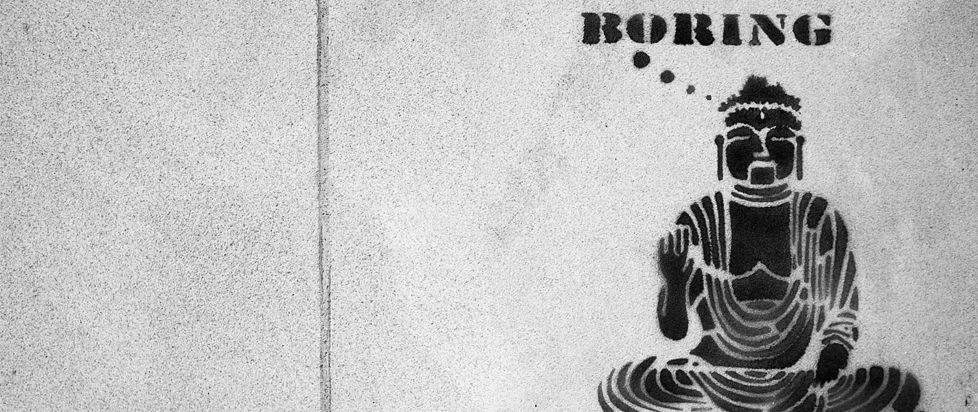
The Wake of the Wake

This column is a reprint from Unwinnable Monthly #164. If you like what you see, grab the magazine for less than ten dollars, or subscribe and get all future magazines for half price.
———
What’s left when we’ve moved on.
———
Sometimes directness irritates. Telling something nakedly can be a form of obfuscating the thing you’re trying to say. But then again, irritation can be a defense mechanism too. I find that sometimes, the things that bother me for being gross or obvious are actually hiding something I really want to hear, though I can’t admit it to myself. AJJ is a band I learned about in college from my friend Maggie and then again from a stranger online, a band I rarely listen to anymore, a band that makes me cry for various reasons. Listening to AJJ makes me feel complicated feelings, from annoyed to moved. Maybe because of this, when I mention them I expect one of two responses back: annoyance, or an expression of movement.
More specifically, AJJ is a folk-punk, increasingly experimental band from Phoenix, Arizona who have released eight studio albums, including one Christmas album. In the past they’ve interrogated their own identities flippantly (“I’m a straight white male in America/ I’ve got all the luck I need”) and more seriously, including when they changed their name in 2016.
In my opinion, AJJ is best listened to when you randomly remember them, like a book of poems you skim through annually and then put back on the shelf. Individual lines are more memorable than whole songs, a quality enhanced by their shoutability, whether that’s the refrain from “Rejoice” or my favorite line from “Skate Park”: “It’s not your job to make everybody happy/ You don’t have to answer to anyone or anybody.”
Their newest album, Disposable Everything, released on May 26, and is their first release since the EP Good Luck Everybody in 2020. Similar to 2011’s Knife Man, it’s a project that combines experimental turns with a central root of catchy solos and purposeful statements that are almost spoken rather than sung. The album’s ideological position shoots between harsh reality and political fantasy, the latter of which can be boiled down to a line in “Strawberry (Probably)”: “Wear it out of the store – everything is free now.”
It’s an album about dissonance, the title of one of the tracks and the line that runs through them all. It peeks through from song to song as well as from line to line, something they’ve played with in most of their albums in the past. Disposable Everything’s rawness in the darker songs also reminds me of Knife Man, which included the line “You can hope it gets better, you can follow your dreams / but hope is for presidents, and dreams are for people who are sleeping.”
This time, as with the last, dark doesn’t mean serious. In one of the most somber songs it almost feels like they shouldn’t be able to get away with a line like “In the foothills of the foothills of the mountain of death / Where the trees smell like cum and all your friends are depressed”. But even if you don’t like that imagery (though I like it a lot) there’s punch in the lines that follow, where the song positions us in “the wake of the wake of the world in decline / Where everything tastes like a plan gone awry”. It’s a dim message that lands more than a hopeful one would. Right now, it feels closer than the holistic optimism of “People,” which sports the line, “People are my religion, because I believe in them.”

My favorite song on the album is “Death Machine,”, which has the exact combo of blunt message delivered poppily that 2007’s People Who Can Eat People are the Luckiest People in the World had. (If you don’t enjoy this quality, you probably don’t like AJJ very much.) The song is perfectly surface level and begs an equally direct response:
I’m not being hyperbolic, this place is a death machine
Both literally and symbolic in the belly of the death machine
Doesn’t matter who is steering, it’s just gonna keep on killing ‘til we find a way to finally break the routine
You might as well face the music, you’re living in a dеath machine
A blunt observation suddenly shatters the surface tension, but it does so while being unpretentious. You can sing and dance along to the guitar and drum parts, and indeed after I listened to it on repeat that’s what I did. But no matter the first or tenth listen, something about that shattering still feels good. And a huge part of that is just hearing someone say the truth of living in the dying American empire out loud. It’s as if Sean Bonnette is the person at a dinner party bringing up the Iraq War or Jeffrey Epstein.
Part of the reason I love this song so much is that, increasingly, I’m that person. My first response to the central message of “Death Machine” was to think about the pandemic and its governmental end just last month, which kicked hundreds of thousands off of Medicaid. I wrote about the pandemic in March urging people to mask up and get the facts. However, the main thing this song gives me is catharsis. It’s very, very frustrating to be one of only a few people I know who seems to care about Covid anymore. I find myself being the person at the party bringing up the true thing that no one wants to think about, with the tension and sometimes frustration that comes back when you do that. It’s depressing. And it feels good to hear someone else say it: yes, we do live in a country that’s gladly hurtling us all towards death.

AJJ never mention Covid on the album, though there are hints of its composition alongside quarantine hobbies, like the mention in “Dissonance” of, “grow[ing] more plants in the window.” Bonnette did acknowledge its psychic impact in an interview in May: “there’s gonna be echoes of that, like, when you drop a rock into a pond, for a very, very long time to come.” But I think their perspective is more zoomed out: the various systems of oppression and negligence that the US has imposed or worsened, from anti-immigrant legislation to bathroom bills, gun violence, inflation, climate change. Many of these come through implicitly throughout the album, in its more sober songs and even in the closing lines of “Candles of Love,” which is set up like a love song but ends with an AJJ bait-and-switch: “And also thank you, capitalism/ Never stop making stuff.”
But then again, certain lines use such specific language that I’m catapulted back into finding a more direct point, like “Strawberry (Probably)” again:
Disposable dignity
there’s no taking this seriously
There’s no time for collective grief
The anarchy of the album’s beginning is the logical result of its end. Through failure to protect others, it argues, we’ve broken the social contract and tossed our moral compass away. The only position left to take is to say fuck it and break the rules. But where rule breaking becomes radical isn’t pleasure-seeking individualism, because individualism is the thing that got us here in the first place. Rather it’s returning to the collectivism AJJ praised on their albums fifteen-plus years ago: caring for other people, letting them care for us.
And yet, my favorite thing on the album is that this realization coexists with simple, sheer despair. To paraphrase my therapist, there can be two opposite feelings at once. And the one that stays with me the longest is on the title track, which asks directly, “How don’t I be cynical when there is no relief?”
What’s the purpose of music – to inspire us, or to walk with us into despair? AJJ’s music always moves between two opposite feelings. It’s easy, and even fair, for me to say that it sucks that these ideas exist on this album and yet they’ll be played at concerts without mask requirements (though to their credit, the band encouraged mask wearing at shows through at least last summer); people will mosh to “Death Machine” and they’ll get other people sick while doing so. I don’t say this to single out AJJ, because almost every other band in existence will do the same. I say it because it forces me to engage in the same splitting of myself that these songs require: frustration at a system of misinformation and willful ignorance, and appreciation that these songs exist at all. If it does nothing else, Disposable Everything reminds me of that fact.
———
Emily Price is a freelance writer and PhD candidate in literature based in Brooklyn, NY.




